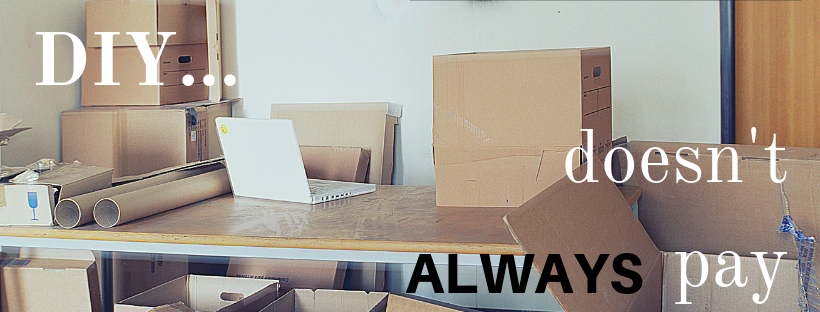Here’s Why Every Startup Should be Using a Third-party Fulfillment
At the early stages of young, ecommerce companies, founders serve in seemingly every role. When this happens, it can feel like bandwidth is at odds with funding, and as a CEO, you must decide whether to cut into your budget or your time.
You also understand that outsourcing the small stuff is a luxury reserved for only the most established companies.
Where you definitely don’t want to skimp, though, is on the shipping and fulfillment logistics that get your product in the hands of new customers.

Some brave entrepreneurs do try to go it alone when it comes to fulfillment, and that desire to maintain control is understandable. Afterall, this company is your baby, born from a singular moment when a good idea became something real and marketable.
But for our brain-children to reach their full potential, sometimes we must let go.
Placing your product in the hands of a well-vetted fulfillment company will not only improve your customer experience it will give you time back to focus on your core business. Most importantly, the change will reveal how a 3PL with the infrastructure to fully optimize your process can significantly widen your margins, opening endless doors to new opportunities.
Speed, Savings, & the Customer Experience!
Nothing puts a bad taste in the mouths of consumers like slow, inefficient service. In utilizing a 3PL, your company will be able to get product in the hands of customers faster and at lower overall shipping costs. Much of this has to do with the way fulfillment companies are able to navigate shipping zones for cost effectiveness.
For instance, your San Francisco based company with a large customer base in New York, will struggle to turn profit shipping in that zone. Meeting the demand for two-day shipping- a necessity in the age of Amazon- will only drive costs higher.
A 3PL located out east- in a more favorable shipping zone for your New York market- can likely ship the average order for half the price.
But my company is growing. What about emerging markets?
Sure, your new fulfillment company is spitting distance from your New York market, but what about this new surge in sales coming from middle America?
This is where being a consumer yourself plays a pivotal role in your company’s success. Identify companies with multiple fulfillment centers that can triangulate the most efficient route for a given order. This way, your costs are kept low regardless of where your customers live.
All of these savings can easily cancel out new fulfillment overhead. What is paid out to your 3Pl partner is an investment in customer relations, as order are processed correctly, and shipped on time.
This is especially important for interactive or subscription based products.Your fulfillment company will ensure you stick to the timeline and monthly fee promised to subscribers at sign-up.
This integrity does not go unnoticed by employees and investors either. Your commitment to keeping your margins at or near those touted in your original business plan is an act of goodwill. It reaffirms your end game is real, long term scale and profitability, and not just valuation.
The Hidden Costs of Doing Business
In addition to immediate improvements made to shipping efficiency, with a third-party in your corner, your company is no longer burdened by the labor costs and taxes associated with order fulfillment. Concurrent with these costs are those concerning the logistics of the actual picking, packing, and shipping.
The time you have spent developing your product has given you perspective and the ability to consider nuance. Thus, you are able to deliver a quality product at the highest value return for your company and its investors.
The same is true of your 3PL.
A well-established logistics firm will identify potential complications in curation, packaging, shipping materials and more. This allows you to achieve a balance of quality and savings perfectly tailored to the brand you intend to build.
Your Most Valuable Commodity
Certainly money makes the world go ‘round. This is especially true in the fast paced, highly competitive world of ecommerce retail. For the online merchant, whose task list is never conquered in full, there is another commodity of equal if not greater importance: time.
This is especially true for young companies where content marketing, product curation/development, customer service, accounting, and fulfillment all seem to fall on the shoulders of a few people.
Certainly every startup goes through this on some level, and so the pivotal question becomes, at what point does do-it-yourself hurt your bottom line? When is the money saved processing and fulfilling orders in house no longer worth losses in time and efficiency? Sacrifices in product quality and customer satisfaction?
Audit your business operations, costs, the role of each employee, and the constraints on their time so that you can recognize when you’ve reached this crossroad.
